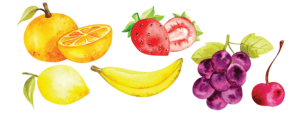 There are many nutrients that can enhance your skin’s natural defenses against cancer. Here are a few examples.
There are many nutrients that can enhance your skin’s natural defenses against cancer. Here are a few examples.
Beta carotene
This is a type of carotenoid, a group of pigments that give fruits and vegetables their color. Beta-carotene boosts the immune system by converting itself to vitamin A, an important nutrient in the body’s ability to fight disease. Beta-carotene also protects the skin from sun damage by acting as a natural sunscreen. Foods rich in beta-carotene include carrots, sweet potatoes, pumpkin, apricots, and spinach.
Vitamin C
This is a powerful antioxidant that helps prevent and repair skin damage caused by free radicals. It also stimulates collagen production, which is important for skin elasticity and wound healing. Foods high in vitamin C include citrus fruits, strawberries, kiwi, broccoli, and peppers.
Vitamin E
This is another antioxidant that can protect the skin from UV rays and inflammation. It also works synergistically with vitamin C to enhance both vitamins’ effects. Foods that contain vitamin E include sunflower seeds, almonds, avocado, wheat germ, and vegetable oils.
Zinc
This is a mineral that is essential for skin health and immunity. It helps heal wounds, prevent infections, and reduce inflammation. It also helps to regulate the activity of oil glands in the skin, reducing the risk for acne and other skin problems. Good sources of zinc include oysters, beef, chicken, beans, nuts, and whole grains.
Selenium
This mineral protects the skin from oxidative stress and DNA damage. It also activate enzymes that repair damaged cells and prevent cancer growth. Good sources of selenium include Brazil nuts, tuna, eggs, turkey, and mushrooms.
Omega 3 fatty acids
These are healthy fats that reduce inflammation and improve skin hydration and elasticity. They also modulate the immune system and prevent abnormal cell growth. Foods rich in omega-3 fatty acids include salmon, sardines, mackerel, flaxseeds, chia seeds, and walnuts.
Lycopene
This is another type of carotenoid that gives some fruits and vegetables their red color. It protects the skin from sunburn and aging by absorbing UV light and neutralizing free radicals. It also inhibits the growth of cancer cells and induces apoptosis (cell death). Good sources of lycopene include tomatoes (especially cooked tomatoes), watermelon, grapefruit, guava, and papaya.
Polyphenols
These compounds have anti-inflammatory, antioxidant, and anticancer properties. They modulate the expression of genes involved in skin cancer development and progression. They also inhibit angiogenesis (blood vessel formation) and metastasis (cancer spread). Foods considered good sources of polyphenols include green tea, red wine, dark chocolate, berries, and spices.
Editor’s note
Even when consuming a healthy diet, it is important to incorporate consistent sun protection measures into your daily regimen, such as wearing sunscreen, protective clothing, hats, and sunglasses and avoiding peak sun hours. You should also see a dermatologist or skin care specialist regularly for skin exams, as well as check your own skin for any unusual changes.
Source
Skin Cancer Foundation website. Can your diet help prevent skin cancer? 8 Jun 2017. https://www.skincancer.org/blog/can-your-diet-help-prevent-skin-cancer/. Accessed 1 Aug 2023.





